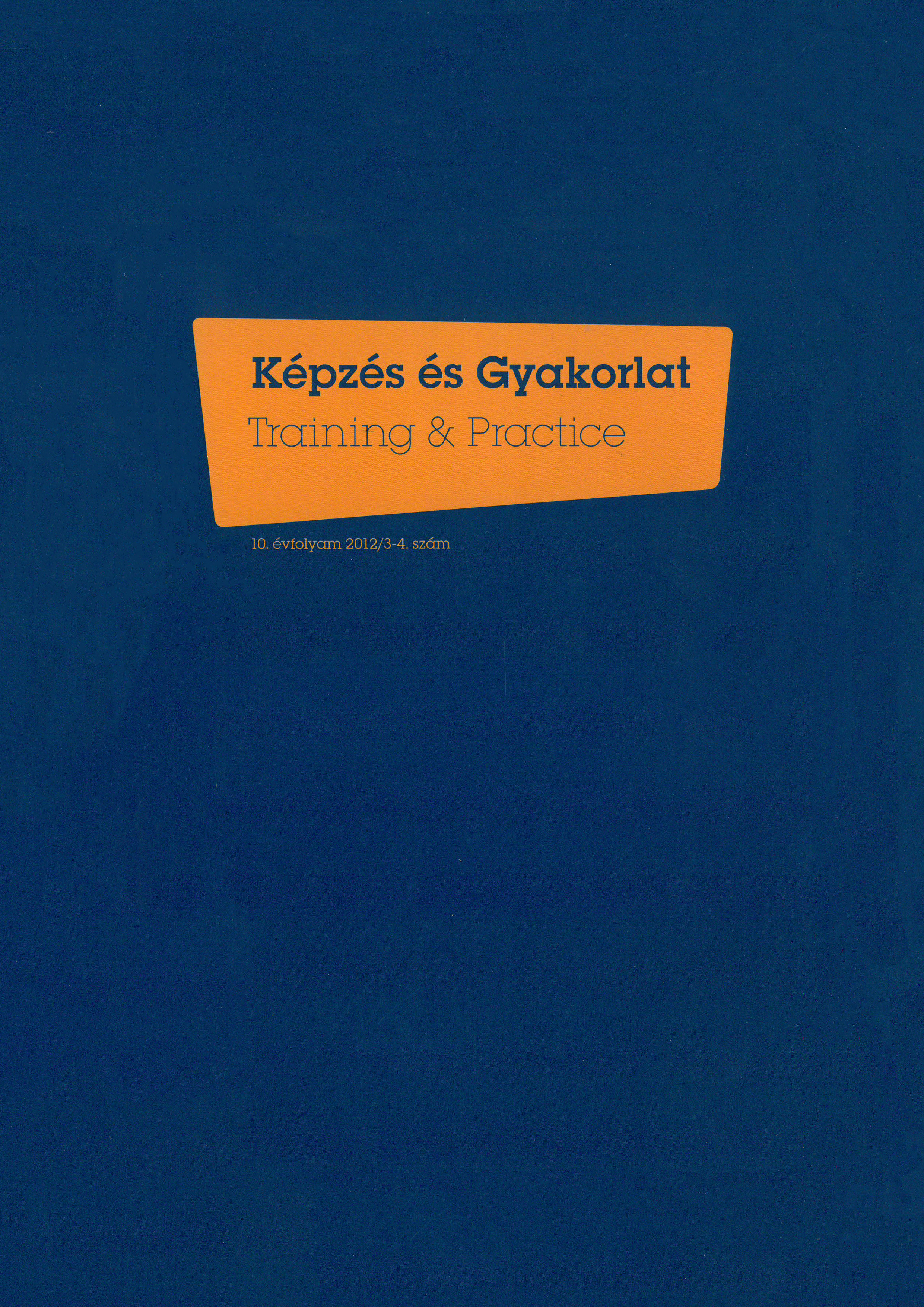The Role of Information Communication Technology (ICT) in Education – their Implementation at Benedictine Secondary Grammar Schools
Abstract
This study was born with the aim of introducing and putting further emphasis on the role, function and purpose of lnformation Communication Technology in education. Information Communication Technology offers complex learning facilities, which as up-to-date and effective tools can support the learning-teaching process in an excellent way therefore their extensive application is indispensable. Nowdays schools can function properly and meet the requirements of the information age, if they provide their students with a wide range of learning supporting facilities, which are used to create equal opportunities for them to acquire knowledge. Therefore all educational establishments such as the Benedictine Secondary Grammar Schools, which have great histories and which gave birth to education in Hungary, strive to apply modern technologies in their teaching and educational work, which will be covered in this study.
References
Bábosik István (2004): Neveléselmélet. Nevelés az Európai Unióban. Osiris Kiadó, Budapest
British Educational Communications and Technology Agency (2003): What the research says about interactive whiteboards. British Educational Communications and Technology Agency, Coventry
Farkas Melinda (2011): Új tantárgyak, új tankönyvek. Magyar Nemzet, március 26. 4.
Fehér Péter (2004): Az IKT-kultúra hatása az iskolák belső világára. Iskolakultúra, 14/12: 27–48.
Gaskó Krisztina (2009): A tanulási kompetenciák szerepe a tanulásfejlesztésben Kísérlet egy tanulási kompetenciaháló megalkotására. Iskolakultúra , 10/19: 3–19. melléklet
Kőrösné dr. Mikis Márta (2006): IKT az oktatás kezdő szakaszában Tanító, 44/5: 8–9.
Komenczi Bertalan (2003): Informatizált iskolai tanulási környezetek modelljei. In: Kőrösné Mikis Márta (szerk.): Iskola – Informatika – Innováció. Országos Közoktatási Intézet, Budapest 25–40.
Molnár György (2008b): Az IKT-val támogatott tanulási környezet követelményei és fejlesztési lehetőségei. Szakképzési Szemle, 24/3: 257–276.
Mumtaz, S. (2000): Factors affecting teachers use of information and communications technology: a review of the literature. Journal of Information Technology for Teacher Education, 9/3: 319–341. doi: https://doi.org/10.1080/14759390000200096
Postholm, M. B. (2006): The teacher s role when pupils work on task using ICT in project work. Educational Research, 48/2: 155–175. doi: https://doi.org/10.1080/00131880600732256
Schiller, J. (2003): Working with ICT Perceptions of Australian principals. Journal of Educational Administration, 41/2: 171–185. doi: https://doi.org/10.1108/09578230310464675
Schulz-Zander, R. – Büchter, A. – Dalmer, R. (2002): The role of ICT as a promoter of students cooperation, Journal of Computer Assisted Learning, 18/4: 438–448. doi: https://doi.org/10.1046/j.0266-4909.2002.002.x
Yuen, H. K. – Law, N. – Wong, K. C. (2003): ICT Implementation and School Leadership: Case studies of ICT integration in teaching and learning. Journal of Educational Administration, 41/2: 158–170. doi: https://doi.org/10.1108/09578230310464666
Hunya Márta (2007): A számítógéppel segített tanulás. Informatikai eszközök és digitális pedagógiai módszerek a tanórán. Doktori értekezés (kézirat). Eötvös Loránd Tudományegyetem Pedagógiai és Pszichológiai Kar Neveléstudományi Doktori Iskola, Budapest
Molnár György (2008a): Az információs és kommunikációs technológiák (IKT) szerepe a szakmai pedagógusképzésben. Doktori értekezés (kézirat). Eötvös Loránd Tudományegyetem Pedagógiai és Pszichológiai Kar Neveléstudományi Doktori Iskola, Budapest
Tompa Klára (2007): The effect of the new ICT school leaving examination ont he attainment of ICT competencies. In: Tompa Klára, Nádasi András (szerk.): Agria Media 2006: Digital teaching and learning environments require new teaching competences and increasing academic achievement. EKF Líceum K, Eger 144–150.
Török Balázs (2007): Az információs és kommunikációs technológiák iskolai integrációja. IKT-metria mérőeszköz. Doktori értekezés (kézirat). Eötvös Loránd Tudományegyetem Pedagógiai és Pszichológiai Kar Neveléstudományi Doktori Iskola, Budapest
A Czuczor Gergely Bencés Gimnázium és Kollégium Házirendje (2006) [online] < URL: http://czuczor.hu/gimnazium-hazirendje/nyilvanos/alapdokumentumok/czuczor-gergely-bences-gimnazium-es-kollegium-hazirendje/download> [2012. január 04.]
Iskolai és diákotthoni rend (2012) [online] < URL: http://phbences.hu/hu/node/19> [2012. január 04.]
Nemzeti alaptanterv (2007) [online] < URL: http://www.nefmi.gov.hu/letolt/kozokt/nat_070926.pdf > [2011. november 03.]
Pannonhalmi Bencés Gimnázium, Egyházzenei Szakközépiskola és Kollégium Pedagógiai Programja (2010) [online] < URL: http://phbences.hu/files/upload/file/PEP_%202010.doc> [2011. november 03.]
TIOP-1.1.1/07/1 A pedagógiai, módszertani reformot támogató informatikai infrastruktúra fejlesztése (2008) [online] < URL: http://www.nfu.hu/download/6803/veglegs_TIOP111_palyazati%20 utmutato%5B1%5D.pdf> [2012. január 04.]
Vass Vilmos (2008): A Nemzeti alaptanterv implementációja. [online] < URL: http://www.nefmi.gov.hu/letolt/kozokt/nat_implement_090702.pdf > [2011. november 03.]
Downloads
Published
Issue
Section
License
Copyright (c) 2012 Bubernik Eszter

This work is licensed under a Creative Commons Attribution-NonCommercial-NoDerivatives 4.0 International License.








